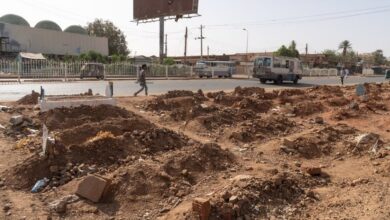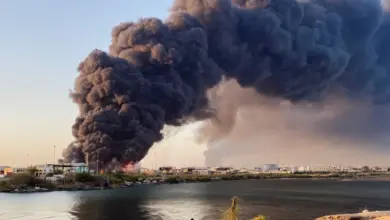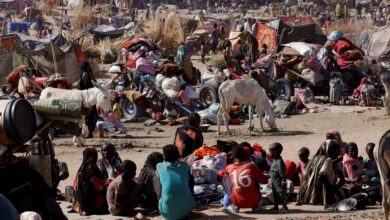Amnesty International on Friday called on Egypt’s government to arrest Sudanese President Omar al-Bashir when he arrives in Cairo this Sunday to meet with President Mohamed Morsy and other top Egyptian officials as part of a two-day visit.
The International Criminal Court (ICC) has issued two arrest warrants for Bashir on charges of genocide, crimes against humanity and war crimes in Darfur.
“If Egypt welcomes Omar al-Bashir it will become a safe haven for alleged perpetrators of genocide,” Marek Marczyński, the international justice campaign manager for Amnesty International, said in a statement for the organization Friday. He added that “Egypt should not allow Omar al-Bashir to enter its territory, and must arrest him if he arrives.”
“In his first address, President Morsy said that Egypt’s values and identity would uphold humanitarian values, especially in freedom and human rights. How can he now shake hands with a man wanted for genocide?” said Marczyński.
The ICC charged Bashir with committing war crimes in Darfur and issued an arrest warrant against him in March 2009. In July 2010, the court brought three different counts of genocide against him. The warrants charge him with criminal responsibility on 10 counts, including murder, forced migration, torture and rape.
Officials from the Egyptian Foreign Ministry have said that Bashir would not be arrested on any visit to the country.
“Cairo will not adopt any measures that go against its policies and historical relations with our brotherly Sudanese nation,” Mahmoud Ezzat, head of the Foreign Ministry’s judicial department, said last year.
Bashir visited Cairo in March 2009, just weeks after the ICC first called for his arrest. Bashir also visited Cairo in March 2011 following the overthrow of former President Hosni Mubarak, and on that visit met with members of the Muslim Brotherhood’s leadership. Former International Atomic Energy Agency chief and reform activist Mohamed ElBaradei refused to meet with him at the time.
Egypt is not a party to the Rome Statute of the ICC, but Amnesty said that the nation should remember all states have a shared responsibility to ensure that persons suspected of genocide and crimes against humanity are investigated and brought to justice.




